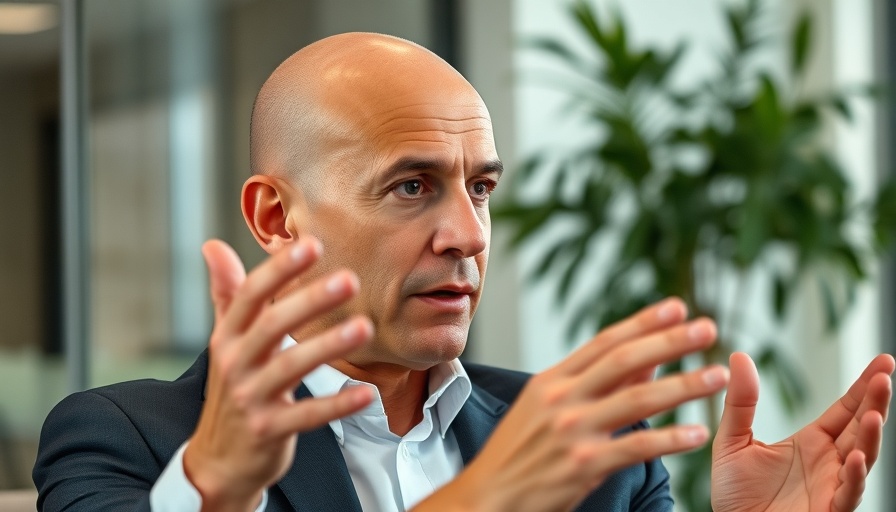
Urgent Measures Amidst Rising Concerns
In a bold move reflecting South Africa's ongoing struggle with health and safety, Health Minister Joe Phaahla announced an "urgent" ban on cannabis-infused foods this week. This decisive action, he asserts, seeks to safeguard vulnerable populations, particularly children, from potential health risks associated with the unregulated sale of these products. The ban comes amid rising health issues and public outcry regarding the impact of cannabis on youth, especially as the country navigates its complex socio-political landscape.
The Context of Cannabis Legislation
The recent ban follows previous debates about cannabis legality in South Africa, where medicinal use was legalized in 2018. While many tout the benefits of cannabis for therapeutic purposes, the confusion surrounding its edibility raises significant public health concerns. Phaahla emphasized that the lack of rigorous regulation over cannabis-infused foods poses a direct risk to the health of children, a stance echoed by numerous public health advocates who stress the potential dangers of unregulated consumption.
Raising Awareness of the Risks
Health risks tied to cannabis consumption, particularly for younger demographics, are central to the arguments presented by Phaahla and community health officials. The side effects can include impaired cognitive functions and increased risk of substance abuse later in life. A study by the South African Medical Research Council indicated a direct correlation between youth exposure to cannabis products and subsequent addiction rates. Understanding these implications is crucial as the government grapples with wider issues of health care, public safety, and social responsibility. The emotional weight of the issue cannot be underestimated, especially for families facing these challenges firsthand.
Public Reaction and Engagement
Reactions to the minister's statement are mixed. On one hand, health experts and concerned parents applaud the immediate action as a necessary protective measure. Conversely, advocates for cannabis legalization argue that the ban reflects an outdated understanding of cannabis use. Many point out the benefits of responsible cannabis consumption if guided by adequate regulations, which might include clear labeling, age restrictions, and educational campaigns. There is an urgent need for dialogue surrounding these perspectives, considering broader societal issues related to drug use, addiction, and public health education.
Political Implications: A Broader Context
This development does not occur in isolation but against the backdrop of South African politics and upcoming national elections. The ANC's handling of health policies is crucial as public sentiment leans towards party efficacy and innovative governance. How the party deals with cannabis regulation might shape voter opinions and future engagement with the youth electorate, an increasingly vital demographic. The rapid pace of social change in South Africa complicates the regulatory landscape in which the government operates.
Future Trends in Regulatory Frameworks
The future of cannabis regulation in South Africa appears increasingly complex. With the upcoming elections paving the way for potentially transformative policies on health and drug use, the Health Department's decisions will be crucial in shaping not just legislation but public perception. The potential for innovations, such as government-supported educational programs alongside strict regulatory frameworks for cannabis use, may facilitate a more nuanced understanding of the drug, empowering citizens while protecting youth.
Decisions to Make and Options Ahead
For stakeholders, including parents, educators, and public health officials, the time is ripe to engage in informed discussions about cannabis. This ban isn’t simply about enforcement but calls for a concerted effort to protect children while also leveraging opportunities for medicinal education and responsible use. Parents may want to advocate for comprehensive educational resources designed to clarify cannabis's benefits and risks. Similarly, policymakers must provide forums for community engagement to listen to concerns and benefit from expert insights.
A Civic Call to Action
In conclusion, while the immediate safeguard against cannabis-infused food is applauded, it is necessary that South African citizens engage responsibly and knowledgeably in discussions regarding cannabis regulation. Be proactive; advocate for informed policies that protect our children yet embrace the evolving understanding of cannabis in medicine and social contexts. The health of our nation hinges on active participation in governance that reflects the dynamic nature of our society's needs.
 Add Row
Add Row  Add
Add 




Write A Comment